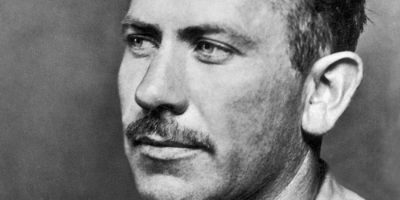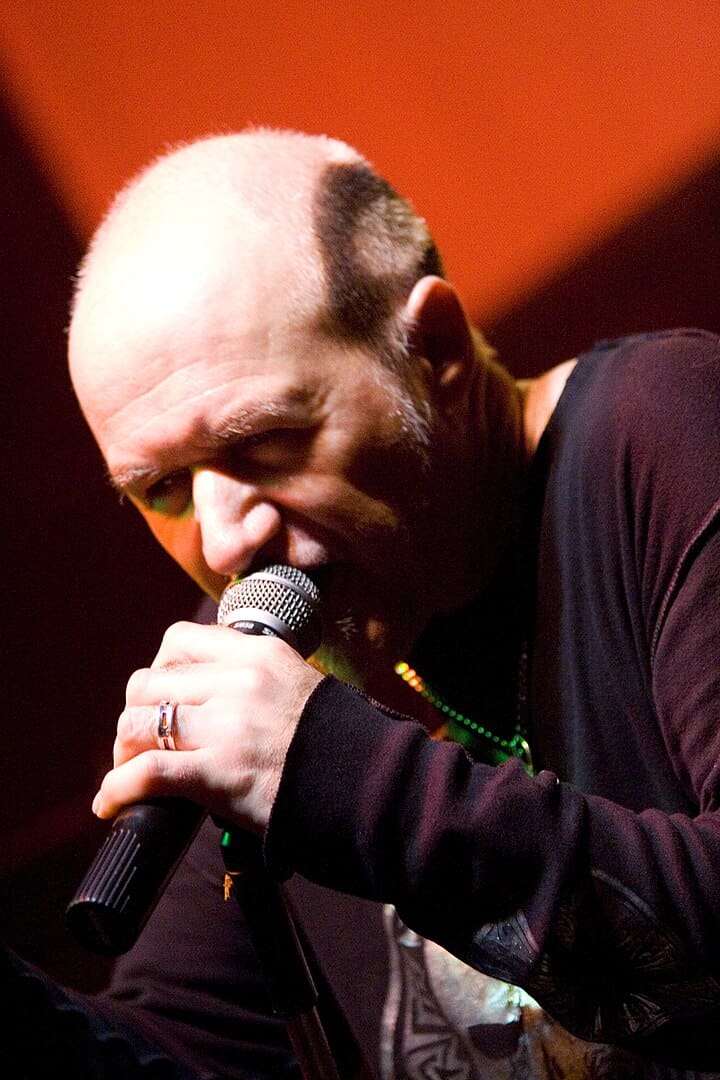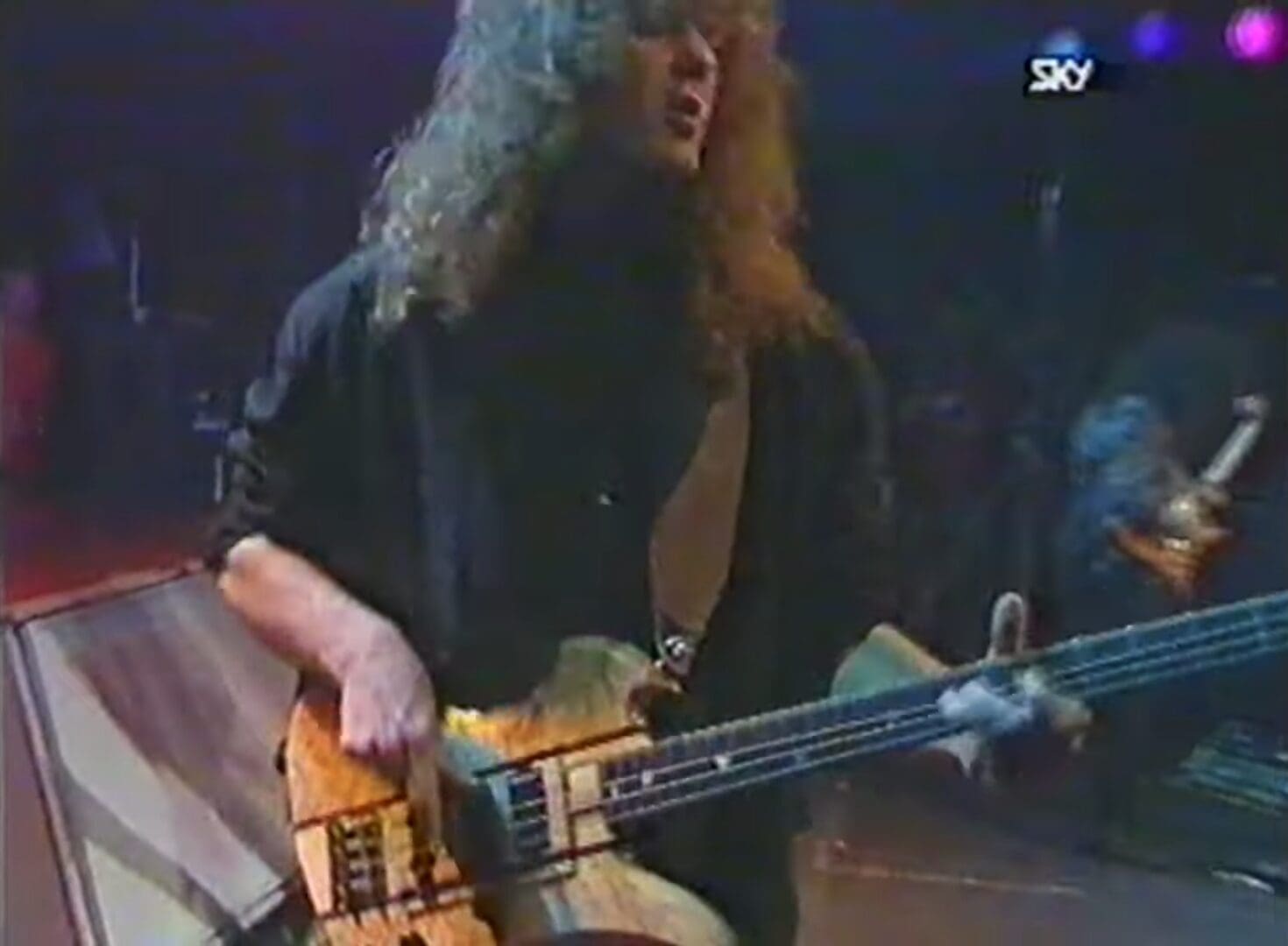From Ozzy to Dio: 20 Legendary Black Sabbath Singers and Their Impact on Rock History
Black Sabbath is an iconic British rock band that formed in Birmingham, England, in 1968. Widely regarded as one of the pioneers of heavy metal music, Black Sabbath is known for their dark, heavy sound, characterized by distorted guitars, thunderous riffs, and dark lyrical themes. The original lineup consisted of guitarist Tony Iommi, bassist Geezer Butler, drummer Bill Ward, and vocalist Ozzy Osbourne. Their self-titled debut album, “Black Sabbath,” released in 1970, is considered a groundbreaking work that laid the foundation for the heavy metal genre.
Songs like “Black Sabbath” and “The Wizard” exemplify the band’s distinctive style, creating an ominous and brooding atmosphere that captivated audiences. Despite lineup changes, their legacy spans five decades. In 2017, the band officially retired from touring after their farewell tour, concluding a legendary career that spanned over five decades. Black Sabbath’s influence on music, particularly in the development of heavy metal, remains profound, earning them a revered place in rock history. In this article i will take you through the journey of the band and its members over the years:
1. Ozzy Osbourne (1968–1979, 1997–2006)

F darkbladeus, Public domain, via Wikimedia Commons
John Michael “Ozzy” Osbourne is an English singer, songwriter, and media personality. He rose to prominence during the 1970s as the lead vocalist of the heavy metal band Black Sabbath, during which period he adopted the nickname “Prince of Darkness”. Joining the band in 1968, his haunting vocals and enigmatic stage presence became synonymous with the band’s early success. Osbourne‘s tenure with Black Sabbath spanned from their self-titled debut album in 1970 to his departure in 1979, marked by influential releases like “Paranoid,” “Master of Reality,” and “Sabbath Bloody Sabbath.”
His vocal style, characterized by its eerie and distinctive tone, perfectly complemented the band’s dark, heavy sound, helping define the emerging genre of heavy metal. Ozzy’s onstage persona, known for its unpredictable and sometimes controversial antics, contributed to Black Sabbath’s mystique and enduring popularity. Despite his departure, Osbourne’s contributions laid the foundation for the band’s success and solidified his status as a legendary figure in rock and metal music.
2. Ronnie James Dio (1979–1982, 1991–1992)

Marossreal name: Marek Krajcer, CC BY-SA 3.0, via Wikimedia Commons
Ronald James Padavona (July 10, 1942 – May 16, 2010) known professionally as Ronnie James Dio, was an American heavy metal singer. He fronted and founded numerous bands throughout his career, including Elf, Rainbow, Black Sabbath, Dio and Heaven & Hell. When Ozzy Osbourne left Black Sabbath in 1979, the band brought in former Rainbow vocalist Ronnie James Dio as his replacement in 1980. Though steeped in the style of earlier Sabbath works, Dio’s soaring tenor vocals and inspired lyrical themes on albums like 1980’s “Heaven and Hell” and 1981’s “Mob Rules” added a new dimension. His delivery wove mysticism and dark fantasy imagery into songs like “Neon Knights” and “Die Young,” expanding on Osbourne’s gloom.
As one of metal’s most powerful vocalists with an acclaimed solo catalog, Dio brought an epic, operatic quality through his dynamic range and emotional conveying of sinister tales. Though clashing over musical direction led Dio to depart Sabbath twice, his additions left an indelible stamp. Revered albums recorded by the singer cemented his legacy among Sabbath’s most celebrated frontmen while proving the band could evolve its sound post-Ozzy. Songs crafted with Dio like “Children of the Sea” and “Heaven and Hell” have become metal standards covered by bands internationally. The metal icon battled cancer valiantly, never stopping his creative passion, right up until his tragic premature death at age 67. But his iconic body of work with Sabbath and as a solo artist continues inspiring subsequent generations of musicians and fans.
3. Ian Gillan (1983–1984)

Alexandre Cardoso from Guarulhos, Brazil, CC BY-SA 2.0, via Wikimedia Commons
Ian Gillan is an English singer who is best known as the lead singer and lyricist for the rock band Deep Purple. He is known for his powerful and wide-ranging singing voice. When Black Sabbath suddenly found themselves without a vocalist in 1982, they made the unexpected decision to recruit Deep Purple singer Ian Gillan. Though known for his towering screams and banshee wails with Deep Purple, Gillan brought a raspy bluesiness to Sabbath’s sound for 1983’s “Born Again” album. His dynamic performances added fresh blood and new stylistic wrinkles, like hints of jazz and brooding Gothic overtones, to the doomy Black Sabbath formula.
Songs like “Trashed” and “Disturbing the Priest” maintained the band’s riff-powered brinkmanship but better incorporated Gillan’s vocal range and penchant for rapid delivery. Though critics initially panned “Born Again,” Gillan’s standout contributions have seen reappraisal over time. Ultimately his single-album Deep Purple-Sabbath synthesis proved an ambitious but short-lived effort when Gillan promptly rejoined his previous band after a bout with pneumonia. Still, Gillan’s brief but electrifying partnership expanded Sabbath’s musical breadth and gave fans a tantalizing taste of an unexpected fusion between two of rock’s most iconic groups.
4. Glenn Hughes (1985–1986)
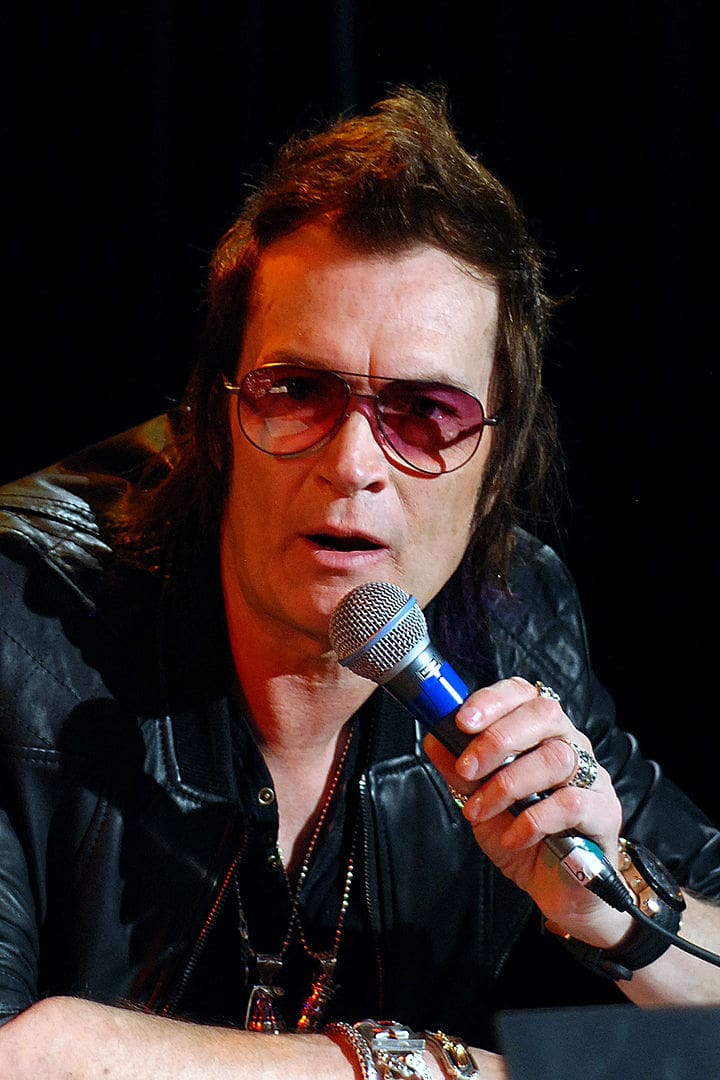
Toglenn, CC BY-SA 3.0, via Wikimedia Commons
Glenn Hughes is an English musician, best known for playing bass and performing vocals in the hard rock band Trapeze and in the Mk. III and IV line-ups of Deep Purple, as well as briefly fronting Black Sabbath in the mid-1980s. He is known by fans as “The Voice of Rock” due to his soulful and wide-ranging singing voice. Glenn Hughes briefly collaborated with Black Sabbath in the mid-1980s. Joining the band during a period of transition, Hughes contributed to their album “Seventh Star,” released in 1986.
His rich and soulful vocal delivery, coupled with his adept bass playing, brought a fresh dynamic to Black Sabbath’s sound, infusing elements of blues and hard rock into the album. During Hughes’ tenure, marked by a brief stint with the band, “Seventh Star” showcased his remarkable vocal range and musical versatility. Though his time with Black Sabbath was relatively short-lived, Hughes left an indelible mark with his contributions, demonstrating his ability to adapt his style while adding depth and a different sonic dimension to the band’s evolving musical identity.
5. Ray Gillen (1986–1987)

Robson Batista, CC BY 2.0, via Wikimedia Commons
Raymond Arthur Gillen (May 12, 1959 – December 1, 1993) was an American rock singer. He is best known for his work with Badlands, in addition to his stint with Black Sabbath in the mid-1980s and recording most of the vocals on Phenomena’s “Dream Runner” album. Ray Gillen, was briefly a part of Black Sabbath from 1986 to 1987. He joined the band after Glenn Hughes’ departure, and during his tenure, he recorded some demos and performed live shows with the group. Although no official studio albums were released with Gillen as the vocalist, his powerful voice and stage presence left an impact during his brief time with Black Sabbath.
17. Bill Ward (1968–1980, 1983–1984, 1987–1994, 1997–2012)

Warner Bros. Records, Public domain, via Wikimedia Commons
William Thomas Ward famously known as Bill Ward is an English musician. He was a co-founder and the original drummer for the heavy metal band Black Sabbath. Ward helped found Black Sabbath in 1968 alongside bandmates Ozzy Osbourne (lead singer), Tony Iommi (guitarist) and Geezer Butler (bass). He was a core member from the band’s inception in 1968 until various departures and reunions throughout their history. Ward’s powerful and distinctive drumming style became an integral part of Black Sabbath’s music.
His rhythmic creativity and solid beats contributed significantly to the band’s signature heavy sound. He played on classic albums like “Black Sabbath,” “Paranoid,” “Master of Reality,” “Sabbath Bloody Sabbath,” and several others during the band’s early years.Throughout the band’s history, Ward had periods of absence due to various reasons, including health issues, contractual disputes, and personal matters. These absences led to temporary replacements and lineup changes within the band. However, he reunited with Black Sabbath multiple times, rejoining for tours and recording sessions, contributing to albums like “Dehumanizer” and “Cross Purposes.”
18. Tony Iommi (1968–2017)

Photobra (Adam Bielawski), CC BY-SA 3.0, via Wikimedia Commons
Anthony Frank Iommi Jr. is an English-Italian musician. He co-founded the pioneering heavy metal band Black Sabbath, and was the band’s guitarist, leader and primary composer and sole continuous member for over five decades and remained a consistent and vital member from the band’s inception in 1968 until their final touring cycle in 2017. Throughout the band’s history, despite various lineup changes involving other band members, Tony Iommi remained dedicated to Black Sabbath as the sole continuous member. His commitment and contribution as the band’s primary guitarist and songwriter were unwavering, shaping the band’s sound and legacy over decades.
Iommi’s presence was essential to Black Sabbath’s music, and he continued to play a pivotal role in the band’s activities, including recordings, tours, and various projects, until their final farewell tour concluded in 2017, marking the end of Black Sabbath’s extensive touring career.Tony Iommi’s influence extends far beyond his tenure in Black Sabbath; his pioneering guitar work and songwriting have left an indelible mark on the entire landscape of rock and heavy metal music, solidifying his status as one of the most influential guitarists in the history of popular music.
19. Dave Spitz (1985–1987)
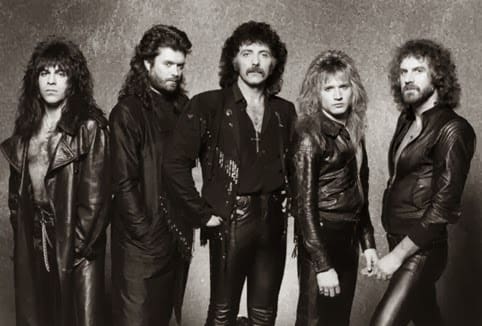
Warner Bros. Records, Public domain, via Wikimedia Commons
Dave “The Beast” Spitz is an American musician best known for having played bass guitar for the heavy metal group Black Sabbath from 1985 to 1987, appearing on the album “Seventh Star” and being credited for (but not playing on) “The Eternal Idol”. Dave also helped discover Ray Gillen, the vocalist who joined Black Sabbath mid-tour in 1986, following the sudden exit of Glenn Hughes. Though his tenure with Black Sabbath was relatively short, he left an undeniable mark on the band’s history.
Known for his energetic stage presence and powerful bass playing, Spitz brought a new level of aggression and technical skill to Black Sabbath’s live performances. His distinctive style, characterized by complex riffs and driving rhythms, perfectly complemented the band’s heavier direction.He possessed a strong work ethic and a collaborative spirit, helping to maintain a positive atmosphere within the band during a period of internal turmoil. His dedication and passion for music were evident in both his onstage performances and his behind-the-scenes contributions.
20. Bev Bevan (1983)

Steve Knight from Halstead, United Kingdom, CC BY 2.0, via Wikimedia Commons
Beverley “Bev” Bevan is a British drummer who not only left his mark on Black Sabbath, but also on the broader rock and roll landscape. He played a crucial role in shaping Black Sabbath’s sound during their early years and later contributed to the success of Electric Light Orchestra (ELO). In 1983, Bev Bevan temporarily replaced Bill Ward in Black Sabbath, joining them on their “Born Again” tour. His powerful drumming and heavy rock background perfectly complemented the band’s sound, contributing significantly to the success of the tour.
He also participated in the recording of the “The Eternal Idol” album, and also appeared in Sabbath’s videos “Trashed” and “Zero the Hero”. further solidifying his place in Black Sabbath’s history. Bev Bevan’s impact on the music industry is undeniable. His innovative drumming, versatility, and collaborative spirit have earned him a place among the true legends of rock and roll. He continues to inspire aspiring musicians and serves as a testament to the enduring power of music.
In conclusion, the diverse array of vocalists and contributors who graced Black Sabbath’s history showcased the band’s adaptability and enduring legacy. Their impact, coupled with the talents of additional members and temporary contributors, reflected the band’s resilience through lineup changes. Black Sabbath’s journey, enriched by these singers’ distinct styles and collaborations, cemented their status as pioneers of heavy metal, influencing generations and solidifying their place in rock history as an iconic band with an ever-evolving sonic identity.
Planning a trip to Paris ? Get ready !
These are Amazon’s best-selling travel products that you may need for coming to Paris.
Bookstore
- The best travel book : Rick Steves – Paris 2023 – Learn more here
- Fodor’s Paris 2024 – Learn more here
Travel Gear
- Venture Pal Lightweight Backpack – Learn more here
- Samsonite Winfield 2 28″ Luggage – Learn more here
- Swig Savvy’s Stainless Steel Insulated Water Bottle – Learn more here
Check Amazon’s best-seller list for the most popular travel accessories. We sometimes read this list just to find out what new travel products people are buying.



